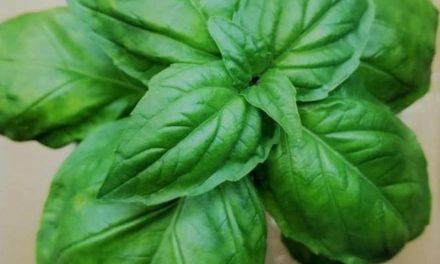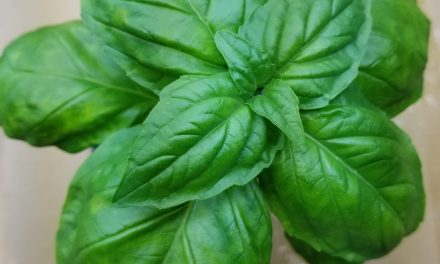Cultivate Wellness: The Health Benefits of Growing Your Own Vegetable Garden
In today’s fast-paced world, cultivating your own vegetable garden offers a multitude of health benefits that extend beyond the plate. As you embark on this rewarding journey, you’ll find that growing a vegetable garden not only provides a form of physical exercise, enhancing cardiovascular health, strength, and flexibility, but also offers unparalleled nutritional advantages of homegrown vegetables, brimming with vitamins and minerals. Moreover, gardening and mental health go hand in hand, as the act of nurturing your plants can significantly reduce stress, boost your mood, and instill a fulfilling sense of accomplishment. By connecting with nature through gardening, you’ll discover an empowering and sustainable lifestyle that fosters both physical and mental well-being, making it an ideal pursuit for health-conscious individuals and families alike.
Physical Health Benefits of Gardening
Gardening as Exercise
Gardening is more than a relaxing hobby; it’s a valuable form of exercise that supports physical health. Engaging in tasks like digging, planting, and weeding works various muscle groups, enhancing strength and flexibility. These activities also improve cardiovascular fitness, similar to light aerobic exercises. Spending time in your garden can burn calories, aiding in weight management. The repetitive motions involved in gardening, such as lifting and squatting, contribute to better balance and coordination. This is particularly beneficial for older adults, as it helps maintain mobility and reduces the risk of falls. Gardening also promotes bone health through exposure to sunlight, facilitating vitamin D synthesis. By incorporating gardening into your routine, you can enjoy the benefits of a full-body workout without the need for a gym. This natural form of exercise not only strengthens the body but also connects you with the outdoors, promoting overall wellness.
Cardiovascular and Strength Gains
Gardening offers significant cardiovascular and strength-building benefits. Regularly engaging in gardening activities like raking, digging, and lifting plants or soil can elevate your heart rate, supporting cardiovascular health. These activities are comparable to low-impact exercises, offering an effective workout for the heart and lungs. As you repeatedly bend, stretch, and squat, your body builds muscle strength and endurance. This physical exertion not only tones the upper and lower body muscles but also improves core stability. For individuals looking to enhance their fitness, gardening provides a holistic approach, integrating aerobic activity with resistance training. Additionally, the dynamic movements involved in gardening can improve joint function and reduce the risk of chronic conditions. By making gardening a routine part of your lifestyle, you can achieve better cardiovascular health and increased physical strength. This combination of exercise and enjoyment makes gardening an ideal way to stay fit and active while connecting with nature.
Nutritional Advantages of Homegrown Vegetables
Richer in Vitamins and Minerals
Homegrown vegetables are often richer in vitamins and minerals compared to their store-bought counterparts. When you grow your own produce, you can harvest at peak ripeness, ensuring that the vegetables are packed with nutrients. The freshness of homegrown vegetables means higher levels of essential vitamins such as vitamin C, vitamin A, and folate. Additionally, minerals like potassium, magnesium, and iron are more abundant in freshly picked produce. Unlike commercially grown vegetables, home gardening allows you to control soil quality and avoid harmful pesticides, preserving the natural nutrient content. By consuming homegrown produce, you can reduce exposure to chemical residues and enjoy superior nutritional benefits. The immediate availability of fresh vegetables from your garden encourages healthier eating habits, as nutrient-rich foods are more accessible. Embracing home gardening not only supports a nutritious diet but also promotes overall health and well-being through better food quality and taste.
Freshness and Flavor of Homegrown Produce
Homegrown produce offers unmatched freshness and flavor, setting it apart from store-bought options. When you grow your own vegetables, you can pick them at the perfect moment, ensuring they are at their peak taste and texture. This freshness enhances the natural sweetness and crispness of vegetables, making meals more enjoyable and satisfying. The shorter time from garden to table preserves the delicate flavors that are often lost in transportation and storage of commercially sold produce. Additionally, the ability to grow a variety of heirloom and specialty crops allows you to experience a diverse range of flavors not typically available in supermarkets. The superior taste of homegrown vegetables encourages increased consumption of healthy foods, supporting a balanced diet. By cultivating your own garden, you not only improve the nutritional quality of your meals but also elevate the culinary experience, making eating well a pleasurable and rewarding part of your lifestyle.
Gardening and Mental Health
Reducing Stress and Boosting Mood
Gardening is a powerful tool for reducing stress and boosting mood, offering a therapeutic escape from daily pressures. The act of tending to plants provides a calming environment where you can focus your attention away from stressors. This mindful engagement in gardening tasks like planting or weeding can lower cortisol levels, the hormone associated with stress. Additionally, spending time outdoors exposes you to natural light, promoting the production of serotonin, a mood-enhancing neurotransmitter. The physical activity involved in gardening also releases endorphins, which act as natural mood elevators. The sense of achievement from nurturing plants and witnessing their growth further enhances personal satisfaction and emotional well-being. Gardening fosters a connection with nature, creating a serene space that encourages relaxation and reflection. By incorporating gardening into your routine, you can cultivate a more balanced and positive mental state, making it an effective practice for enhancing overall quality of life.
Fostering a Sense of Accomplishment
Gardening fosters a profound sense of accomplishment, offering tangible results from your efforts. The process of nurturing a plant from seed to maturity provides a rewarding experience, as you witness the direct impact of your care and dedication. Each successful bloom or harvest reinforces personal achievement, boosting self-esteem and confidence. This sense of accomplishment is not only fulfilling but also promotes a positive mindset, contributing to mental well-being. The routine and responsibility of caring for a garden instill a sense of purpose and structure in daily life, encouraging perseverance and patience. These qualities are transferable to other areas, enhancing overall productivity and resilience. Gardening also presents opportunities for problem-solving, as you adapt to challenges such as pests or weather changes. Overcoming these obstacles further enhances the feeling of mastery and self-efficacy. By engaging in gardening, you cultivate not just plants, but also a mindset of achievement and personal growth.












